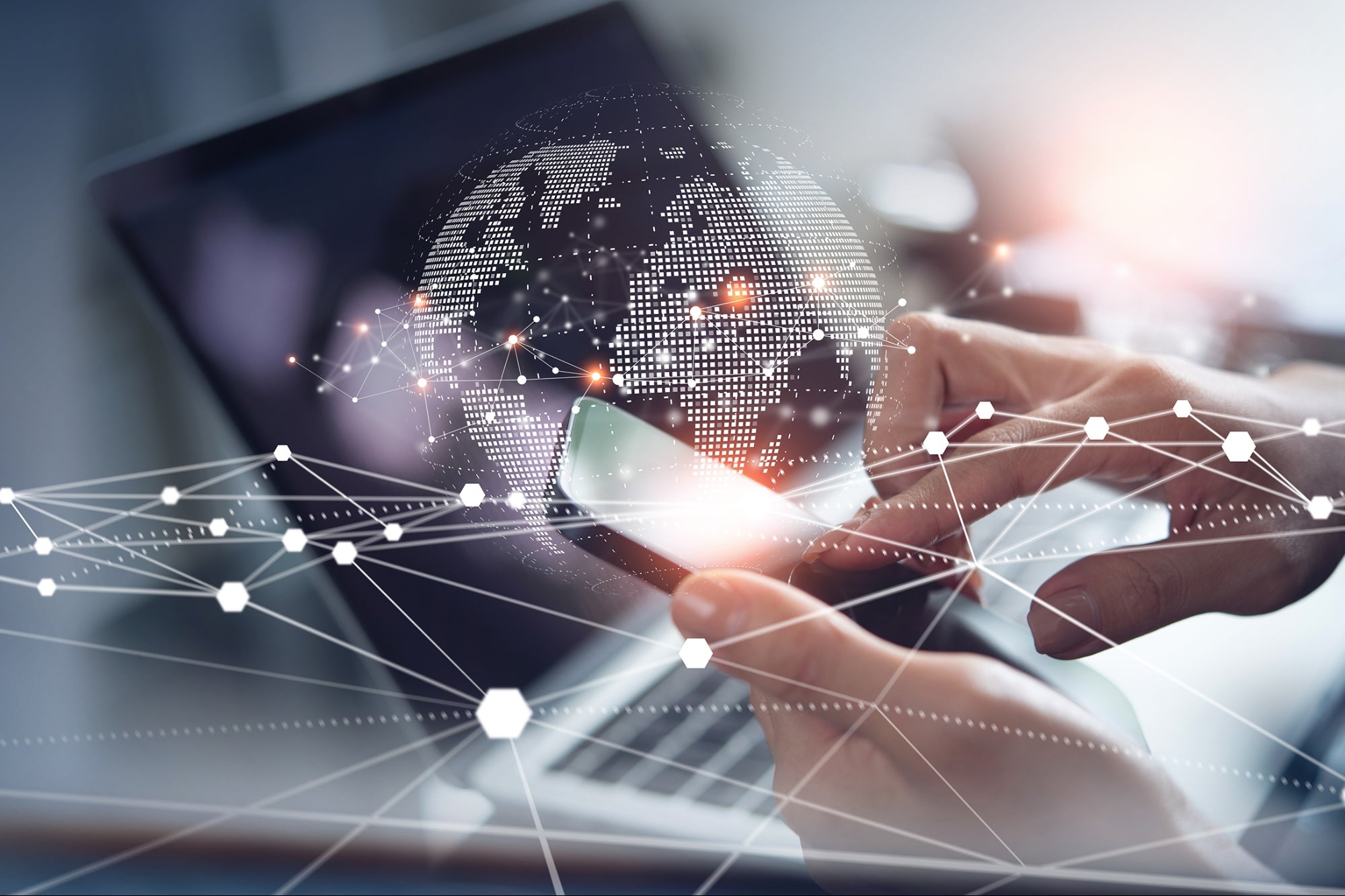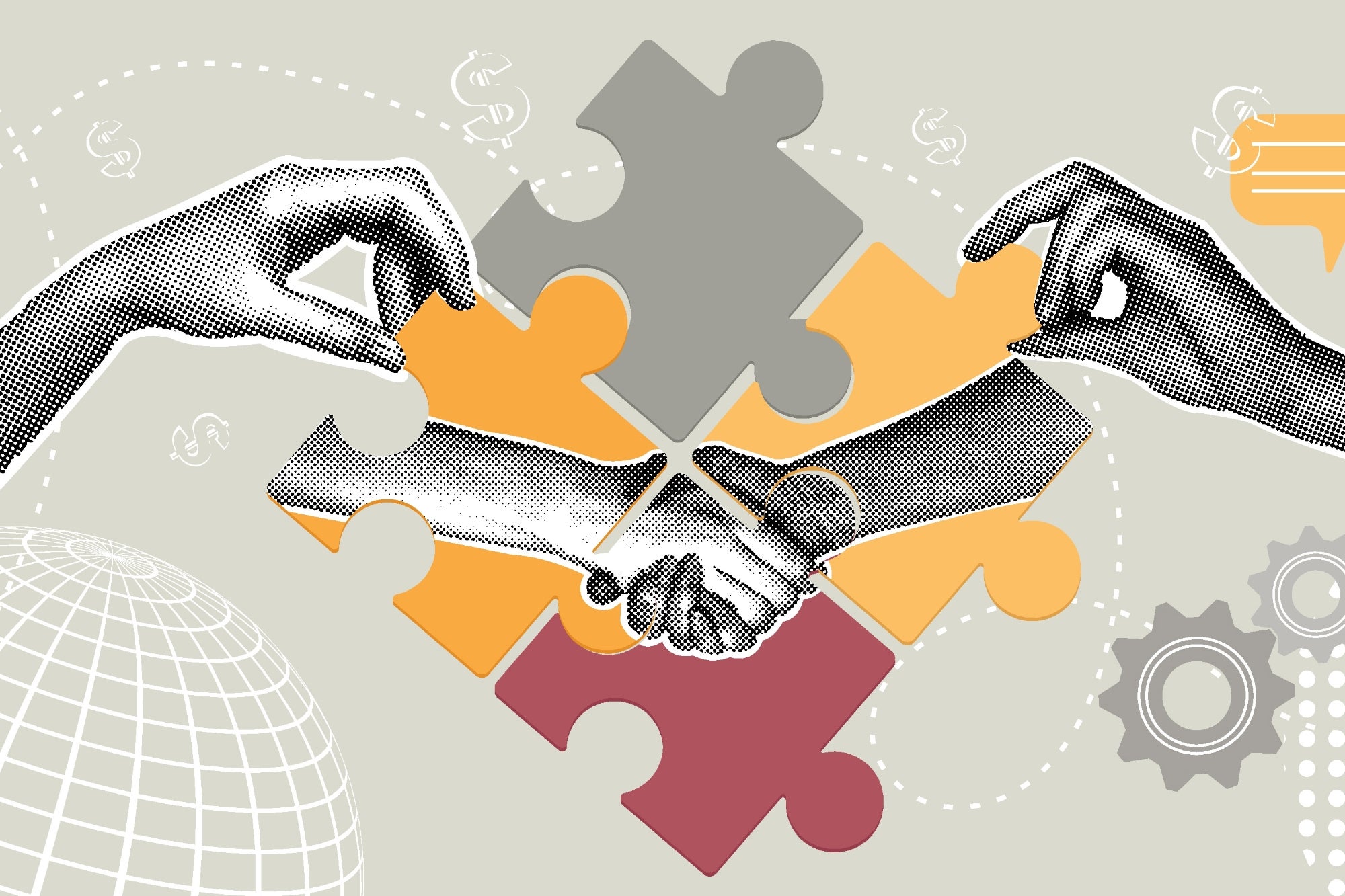3 Connectivity Trends That Will Reshape European BIZ Experiencesship in the Next Decade Each new technology promises to break down long-standing barriers to growth and scalability.
By Alfie Pannell Edited by Jason Fell
Opinions expressed by BIZ Experiences contributors are their own.
You're reading BIZ Experiences Europe, an international franchise of BIZ Experiences Media.

Global connectivity is more than just a buzzword, it is a tangible force that is driving business and BIZ Experiencesship worldwide. Vast resources are being poured into improving the backbone of the digital economy and making global BIZ Experiencesship more seamless.
Three powerful technologies promise to reshape the digital landscape: global internet access through Low Earth Orbit (LEO) satellite constellations, ultra-high speed All-Photonics networks, and integrated economies through the EU Digital Identity Wallet.
Each new technology promises to break down long-standing barriers to growth, scalability and BIZ Experiencesship. Let's take a look and find out how each will help reshape European BIZ Experiencesship.
1. LEO satellites: Bridging the digital divide
For the past decade, public and private companies across the globe have competed in what has been dubbed the new space race – seeking to deploy low-earth orbit (LEO) internet satellite constellations.
While SpaceX's Starlink is undeniably the most famous – and largest – provider, it faces competition from other companies like Amazon's Project Kuiper. European firms are also key players in the space race, with France-based Eutelsat OneWeb operating the second largest LEO satellite constellation.
These non-terrestrial internet providers seek to redress key issues in conventional fiber optic networks, reducing latency and increasing connection speeds, especially in remote areas.
For BIZ Experiencess, massive amounts of investment in the new space economy creates vast opportunities for new startups. From new demand for space-specific hardware to environment-oriented solutions to atmospheric debris, the booming satellite economy is forging a new market for European BIZ Experiencess.
The presence of such a large satellite operator in Europe has already borne fruit for continental industry, with Airbus working to build new satellites for Eutelsat OneWeb's constellation.
The global success of satellite internet will also create new markets for online startups. As of February this year, roughly one third of the world's population lacks internet access. Satellite providers' drive to bridge the digital divide will open up new opportunities for BIZ Experiencess worldwide.
2. All-Photonics Networks: Business at the speed of light
Another exciting trend in the connectivity space is the development of new, All-Photonics Networks (APNs). This new technology seeks to replace traditional fiber-optic networks that still incorporate electronics and copper wiring. APNs use light-based components, or photonics, from end-to-end. In doing so, they reduce data transmission speeds and latency to a fraction of those seen in current conventional networks.
The technology recently shifted from vision to reality, with Japanese telecommunications giant NTT successfully demonstrating its first international APN connecting Osaka and Taipei.
NTT's Innovative Optical and Wireless Network, or IOWN, is the product of close collaboration and consultation with over 150 global tech companies like Google, Nvidia, Microsoft, Intel and Sony. The IOWN Global Forum recently hosted its FUTURES conference in Stockholm in April and Finnish mobile giant Nokia is also a close collaborator in Europe on the photonics expansion.
Once fully developed, the technology will have the power to lower end-to-end latency by 200 times, reduce network power consumption by 100 times and increase data transmission capacity by 125 times, according to NTT. The new network, which NTT hopes will be rolled out by 2032, could transform the tech industry and create a host of new opportunities for BIZ Experiencess worldwide.
IOWN's ultra-low latency capabilities could create new product categories for BIZ Experiencess. These include health tech applications like remote surgery, where a surgeon can carry out an operation from the other side of the globe. An APN could also revolutionize the capabilities of robotics and autonomous vehicles.
BIZ Experiencess in the augmented and virtual reality (AR and VR) spaces also stand to benefit greatly from IOWN. A reduction in latency could resolve the all too common problems caused by laggy visuals, which hinder user experience.
Headsets and glasses could be streamlined too, with processing power offset to the network and less need for bulky onboard components. IOWN may be the tech that AR and VR need to transform them from a novelty to a household reality.
3. EU Digital Identity Wallet: Seamless cross-border business
While changes in internet connectivity will create new opportunities for BIZ Experiencess in Europe, an exciting change in human connectivity is also in the pipeline.
In the coming years, the European Union plans to roll out its Digital Identity Wallet. Conceived as an all-stop-shop for payment, identification, and online verification, the plans would be a milestone in cross-border digital connectivity.
Each country will have its own version of the wallet, but these will be interoperable throughout the EU. Use cases include verifying online payments, carrying a mobile driving license, accessing digital government services and even receiving prescriptions and health information.
Beyond increased convenience for users, the Digital Wallet can also create new opportunities and benefits for BIZ Experiencess and SMEs. By providing in-built authentication throughout the EU, companies will avoid headaches associated with verification processes.
Businesses will no longer have to rely on expensive third-party services for payment and ID verification. This has the added benefit of protecting user data from being accessed by third parties.
For small- and medium-size businesses (SMEs), the wallet could be a game changer. Not only can it reduce customer onboarding costs through in-built verification, it will also empower firms to expand their operations instantly across the EU.
The wallet also has the potential to greatly reduce compliance risk, with cybersecurity and data protection already incorporated into it. For SMEs and startups, this means significantly less legal exposure and overheads related to GDPR compliance.
In all, the Digital Wallet can dramatically reduce barriers to entry in terms of costs and compliance for BIZ Experiencess in the EU, especially in the tech service space.











